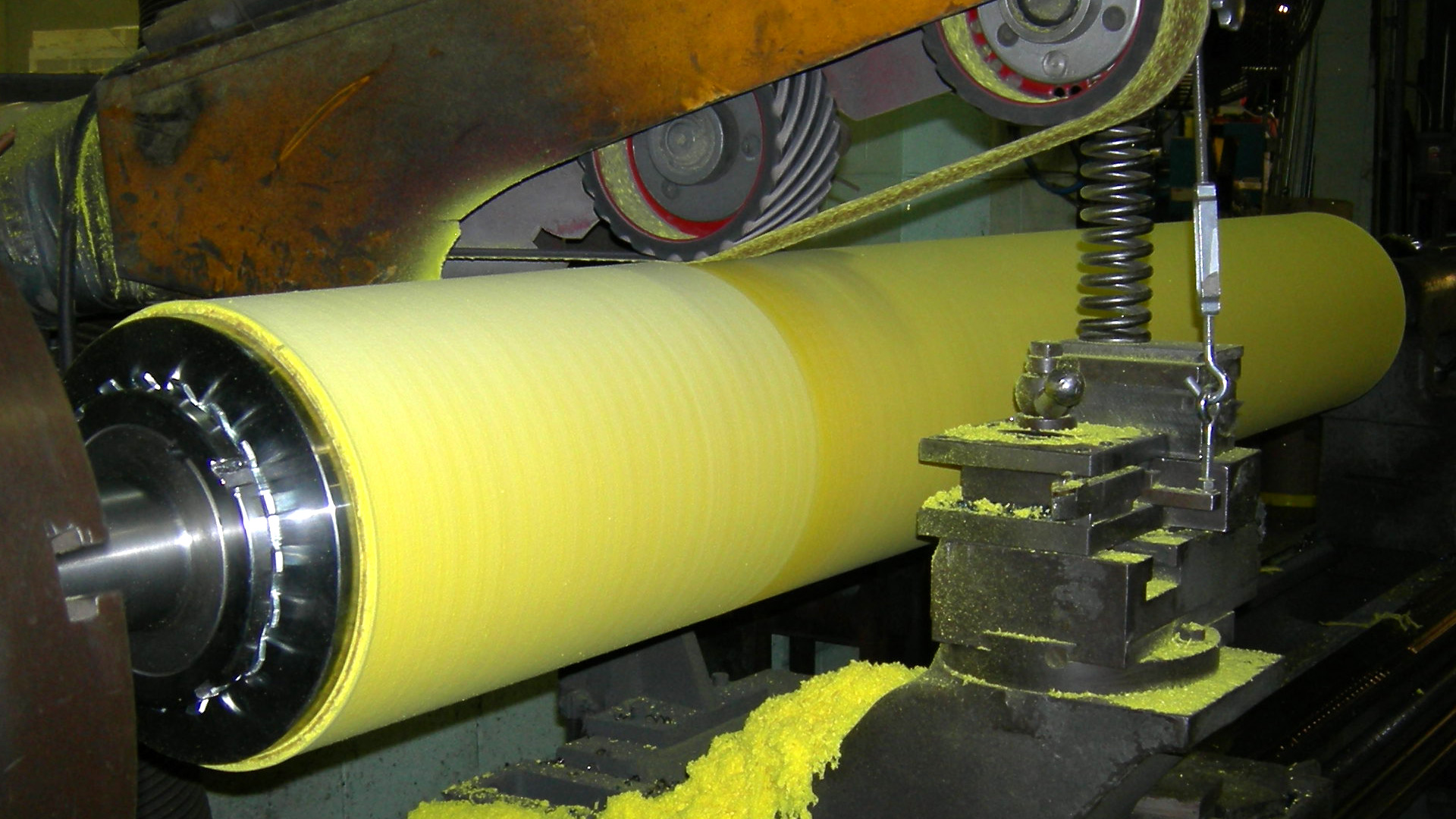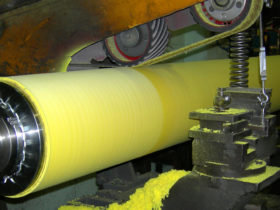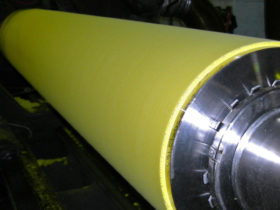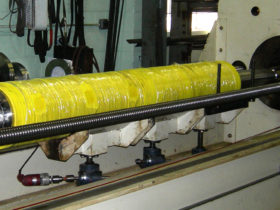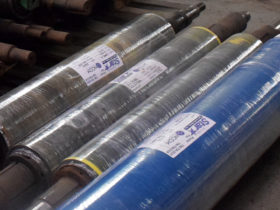Wringing
3M™ Mill Rolls are slightly compressible with a porous open surface. With the compressible, sponge-like characteristic, the rolls conform to the smallest variations in gauge thickness to maintain consistent tight contact across the strip. This tight contact helps assure exceptionally uniform wringing so strips emerge drier from the rinse tank. In some cases, users have found up to a 95 percent reduction in solution “carry through” compared with conventional rubber rolls. The porous surface absorbs the fluid’s hydrodynamic forces to greatly reduce the chance of hydroplaning, which can cause slippage.
Oiling and De-Oiling
With tight contact, 3M™ Mill Rolls meter and apply lubricants consistently and uniformly. Operators can remove excess protectant oils on incoming metal strip. This “de-oiling” helps reduce costs and improve capabilities in the caustic cleaner.
Defects Reduced
The results of 3M™ Mill Rolls replacing rubber rolls in an automotive stamping operation are shown below. With the more effective wringing action of the 3M™ rolls, defects were reduced from four per hundred stampings to approximately one per hundred.
(See Graph Below)
Broad Operational Pressure Range
3M™ Mill Rolls can be used within a wide range of pressures and temperatures and still provide excellent wringing. Wringing has been evaluated under a wide range of operating pressures. Nip pressure as measured in pounds/linear inch of roll width (PLI) is the key parameter.
Easy to Repair and Reuse
While 3M™ Mill Rolls resist cuts and gouges and are self-healing, they still can be damaged by major irregularities in the strip surface. Sharp edges from a break in the strip, for example, could severely cut the roll.
Star Tool & Die can make repairs quickly, eliminating the need to inventory large numbers of replacement rolls as spares. If severe damage occurs, the damaged portion of the roll can be removed from the shaft and repaired within a few hours.



